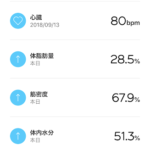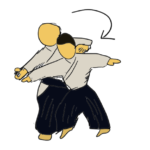え?! 栄養不足ですと?!
私は今、「糖質制限」でダイエットに挑戦しています。
ところが、もう3カ月は経つでしょうが、まったく効果が出ません。
でもちゃんと結果が出てる方はたくさんおられます。
何がダメなんだろう?
というわけで、実際に専門の先生に相談に行ってきました。
そこで分かったことを纏めてみたいと思います。
糖質制限をもう一度おさらい
これは私自身の解釈です。
「糖質制限」とは、1日の食事に含まれる「糖質」を制限する事です。
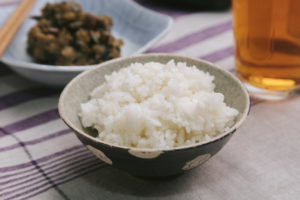
具体的に言いますと、食事を摂ると血糖値が上昇します。
この時、血糖上昇値が高く跳ね上がる食材とそうでない食材があります。
この血糖値上昇をなるべく抑える食事管理をするというのが「糖質制限」の本質だと考えています。
極論を言えば、おにぎりを10個食べてもそんなに血糖値が上昇しなければ、10個食べてもOKなのです。
だがしかし実際に「太る」原因は「糖質」なわけです。
なので血糖値が上がり安い食材を摂らないようにすることが大事になってきます。
糖質制限して何故痩せないのか?
「痩せる」とは、体が栄養で満たされていないと出来ないのです。
血液検査結果を見てもらってすぐに言われました。
「栄養不足ですね。」
え?!( ゚д゚) あんなに毎日がっつり食べてるのに~~??
説明によると、肝臓のタンパク質を分解する力が低いそうです。
だからいくらタンパク質を摂取しても分解しきれていないので、栄養として吸収されていない。
つまり、栄養不足である。
まじすか!って感じでした。
栄養がない状態で体が動いても何も消費されないのは分かりました。
具体的にはタンパク質が不足しているのですが、これが満たされてこそ痩せる体制になれるわけですね。
ただここで血糖値が上がりやすい食材を摂ってしまうと元も子もなくなるのです。
血糖値が上がりやすい食材ってどんなものがあるの?
ここで、じゃあ一体何を食べたらOKで、何を食べたらNGなの?
って質問が湧いてきます。
ここではざっくりと箇条書きで書きます。
・米、小麦(パン系のもの)
・果物(季節の物は適量ならOK)
・根菜類(菊芋のみOK)
米と小麦は炭水化物ですから分かりやすいと思います。
小麦から作ったお菓子なんかもそうですね。
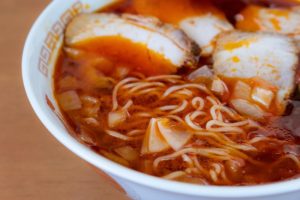
果物も糖を摂るのが目的なので控えましょう。

根菜類も糖質があるので私は食べていません。
ただし菊芋はイヌリンが含まれるのでOKです。
大事なのは、NGだからといって「危険」ではないということです。
例えば、玄米を例に挙げます。
玄米にはとても良い栄養がたくさんあります。
ここで目的は「糖質制限」ですので、玄米にも当然糖質が含まれるのでこの場合はNGとなります。
しかし、ビタミンBとかその他優良な栄養を摂るのが目的であれば、食べてもらってもOKとなります。
食べる「目的」をはっきりとするのが重要なのです。
栄養不足になった原因とは?
まず毎日の食事メニューをチェックしてもらいました。
そこで指摘されたのが、「タンパク質」が十分に摂ることが出来ていないこと。
肉と卵はたくさん摂っているつもりでした。
でも1日の摂取量を認識していませんでしたので、当然少なかったのです。
1日必要なタンパク質の量について
さて、1日に必要なタンパク質ですが、自分の体重と同じグラム数です。
(例)
100キロの人ならば、100gが必要です。
あくまでタンパク質が100gです。
これを実際の食品だとどのくらいになるかというと、「6倍」すればいいんですね。
だから100g×6=600g
100キロの人は1日に600gのタンパク質が必要となるわけです。
600gと言えば、標準サイズのステーキ(300g)が2枚!
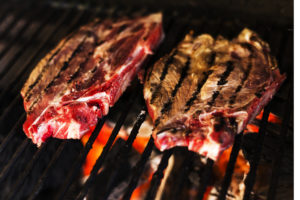
これを毎日食べる! いや、無理ですばい。
飽きるし、お金かかるし。
そこで他の食品でまかなうのです。
例えば、「卵」「魚」「チーズ」が代表的です。
卵は1個に約6~10gタンパク質があるので、約6個で60g。
青魚半身でタンパク質が20gほど。
赤身肉120gでタンパク質が20gほど。
これで60+20+20=100gとなり、1日に必要なタンパク質摂取量は満たされます。
食費を考えると、卵をたくさん食べたほうがいいですね。
ビタミンB群とビタミンCも必要です
タンパク質だけではだめなんです。
ビタミンB群とCも必要です。
例えるなら、タンパク質がガソリンだとすると、ビタミンは「オイル」のようなものです。
エネルギーを代謝させる働きがあります。
それと、野菜を摂る目的の一つに「ビタミンC」があります。
1日3000mgが目安なのですが、野菜にすると膨大な量になるので、ここはサプリメントをオススメします。
ビタミンB-100 カプセル 100粒 NOW Foods(ナウフーズ)
食事のタイミングをもう一度考えてみる
食事をするタイミングも重要です。
食事を「食べてない」時間を12時間空けると、食べ物を消化しやすくなります。
するとエネルギーも消費しやすくなり、痩せやすくなるのです。
つまり、朝8時にご飯を食べたら、夜は8時までに食べましょう。
そうすれば次の朝ごはんまで12時間あるから、体も休めることが出来ます。
しかし!私みたいなサラリーマンは朝6時に食べ、夜は21時過ぎに帰宅します。
こうなると無食事時間が9時間未満になるので、食物が消化されにくくエネルギーも消費されないまま蓄積されてしまいます。
だったら朝か夜のどちらかをずらすしかない。
でも帰宅時間は変えられない。
そうなると、朝ごはんをコーヒー程度にして、今までの朝ごはんを昼に詰め込む!
そうすれば昼12時~21時に食事が済むので、食事しない時間が12時間以上空けられますね。
まとめと感想
今回は、先生に相談して本当に良かったです。
適切な栄養の量とタイミングを完全に雑に扱っていました。
早速先週から食事メニューとタイミングを見直して実践中です。
結果が出るにはまだまだ1か月ほどみないといけませんが、体調は良いです。
また再度先生の本を読み直し、糖質制限をしっかり理解してダイエットしていきたいと思っています。
糖質改善に関心を持たれた方はぜひお読みになってください。
ただの食事制限ではないことがわかります。
以上、たいこでした!












